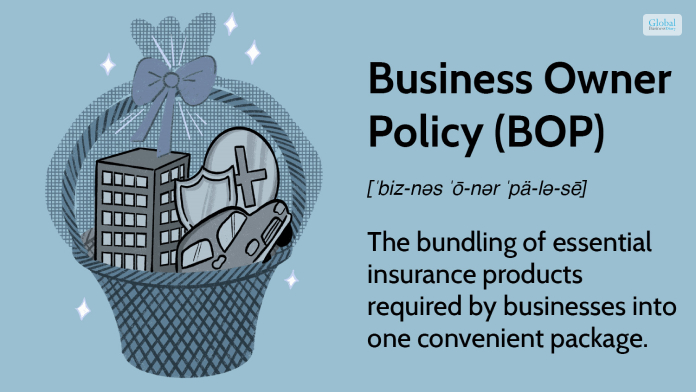Is Startup Business Insurance Necessary For New Businesses?

Let me guess – you have a new startup business. However, while your business will be up and running (or already is), you realize you don’t have insurance against any damage that might happen to it. So what do you do? You invest in startup business insurance.
If you wish to learn about the various types of insurance for startups, read this post till the end.
Is Startup Business Insurance Necessary For New Businesses?
Yes, startup business insurance costs are necessary for a new startup business because:
1. Provides Financial Compensation Against Business Misfortunes

The main point of having startup business insurance is to protect yourself from any misfortune that might befall your startup. Whether it’s data theft, property damage, lawsuits, or more, insurance will provide financial backup for all such problems.
2. It Attracts Investors

Most professional business investors are smart about understanding which businesses to invest in. Therefore, if they see that your startup business is covered by insurance, they will rest easy knowing that they will not suffer a loss if anything happens.
3. Top Talent Gets Attracted

Nowadays, employee benefits have become necessary for all businesses. Therefore, if you don’t provide employee benefits like health insurance, they are less likely to be interested in working for your startup.
4. Builds Better Customer Relations

If you have a B2B (Business to Business) startup, your client businesses might ask for proof of insurance before doing business with you. Other businesses are less likely to do business if you cannot provide insurance.
Different Types Of Startup Business Insurance
If you wish to learn more about different types of startup business insurance before purchasing one, then here we are. Continue reading to learn about all the main business insurance for startups and various start up business insurance costs.
1. General Liability Insurance

You can expect your employees to suffer from accidents if you have a production business with your own production centers. For example, while working heavy machinery, workers can injure themselves.
Moreover, they can injure themselves when they are carrying heavy things from one place to another. The possibilities are endless here!
Therefore, General Liability Insurance is the first startup business insurance you must invest in. This will help you compensate employees who injure themselves while at work. In addition, it also covers damage done to clients’ assets.
2. Errors And Omissions Insurance (E&O)

This startup business insurance is necessary for new businesses offering professional services. It’s necessary for such businesses because mistakes in services provided, mostly in the form of errors, are more common than you think.
Making mistakes in services provided to clients can make them suffer financial losses. Therefore, before they can file a lawsuit against you, you can simply offer compensation to them. This professional courtesy is helpful because doing so often improves your connection with clients. Doing so might make them return.
3. Workers’ Compensation Insurance

This startup business insurance is a more narrowed-down form of General Liability Insurance. In this case, the insurance serves as health insurance for your employees.
If any of your employees suffer physical harm due to the nature of work or even fall sick while working, you can compensate for their recovery. This is important for startup businesses because many forms of health insurance will deny their services to businesses. In addition, it also offers disability benefits to employees.
4. Cyber Liability Insurance

Due to the ever-increasing need to digitize daily business activities, your business data is now more vulnerable than ever. This is because all your business data is stored in online cloud drives, which hackers can skillfully hack.
Moreover, with online banking being the most common system of making payments, all your financial data is also stored online. Therefore, a single data breach and theft here can result in hackers stealing all your financial data and money.
Therefore, having startup business insurance is necessary to protect your business data (which is worth a lot). This insurance is necessary if you have a business that uses many digital resources and stores data digitally. This business insurance saving helps compensate for data breaches and theft.
5. Business Owners Policy (BOP)

Every business has a commercial address – a workspace, office, or headquarters. Therefore, your business office is a form of commercial asset. So are your employees and clients (somewhat). If any harm comes to them, you will have to compensate them.
Therefore, choose a startup insurance company or the best insurance apps that provide a Business Owners Policy (BOP). This form of startup business insurance covers both General Liability Insurance and Commercial Property Insurance.
6. Employment Practices Liability Insurance (EPLI)

A time might come in the future when an employee (or ex-employee) of your office might sue you. No matter what the cause is – whether it’s discrimination in the workplace, harassment, or wrongful termination – it will always portray your business in a bad way.
Therefore, invest in Employment Practices Liability Insurance to prevent your new business from being termed as an employee rights violator. An EPLI will allow you to compensate your employees, preferably with an off-the-court settlement, before it can go public.
7. Commercial Auto Insurance

If you have a start-up business that involves transporting goods and materials, it’s best to ensure your vehicles. They might get involved in an accident on the road or, worse, get stolen.
Therefore, Commercial Auto Insurance is necessary for new businesses. This startup business insurance will help you get compensated for any damage caused to your vehicles. Therefore, this is a necessity for dropshipping businesses.
8. Directors And Officers Insurance (D&O)

Starting a new business is not easy. You must make a foolproof business plan that is good enough to satisfy investors and stakeholders. You can do this by yourself or by forming a board of directors to aid you in decision-making.
However, a bad decision and course of action suggested by a director can single-handedly dissatisfy investors and make them leave. Worse, it can even bring your startup to the ground.
Therefore, you must invest in startup business insurance like Directors and Officers Insurance (D&O). This will help you compensate for investors’ lawsuits and other lawsuits that happen due to decisions made by directors and officers.
9. Commercial Property Insurance

When you start a business, you have a workplace – its headquarters. All your equipment is stored here, and it is where business takes place. However, what will you do if it gets destroyed by a fire or a storm? Or does most of your expensive equipment get burgled?
This is where a startup business insurance like Commercial Property Insurance reduces a lot of financial loads when such misfortune befalls your business.
Therefore, if you want your outdoor restaurant furniture durability and style to remain the same, investing in commercial property insurance will be a smart choice.
Conclusion: Insure Your Startup Business Now For Better Protection
Having a startup business insurance like the ones explained above will prove to be valuable in times of crisis. No matter what damage befalls your business, these insurances will provide backup in such times of need. Therefore, it’s best not to ignore them.
If you need a startup business insurance consultation, comment below!
Read Also:













